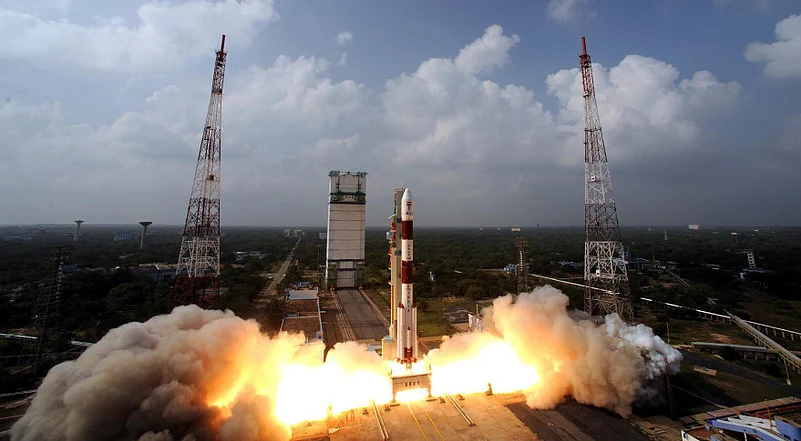The buzz in India's space community began early on Wednesday when the prospect of India sending up astronauts -- a goal that's been long in the works -- suddenly had a deadline: 2022. As India's space agency chief K Sivan put it, the PM's announcement in his Independence Day speech took even the folks at the Indian Space Research Organisation (ISRO) by surprise.
But the ISRO has been working towards a human space flight for close to 15 years, developing some key technologies in bits and pieces. Still, the challenges are aplenty.
Advertisement
"It's not like we are starting from zero," Sivan told reporters at a press conference on Wednesday. "We have developed already some critical technologies," he said. Now, some of the tasks ahead will involve testing these rigorously -- for instance, testing the crew escape system and the space suit at different flight conditions. Besides, it also has to make the rocket, GSLV MKIII, ready for a human rating certification. Broadly, this would involve reducing pressure and temperature to levels that can be tolerated by humans.
"The moment you talk of a human on the vehicle, whether it is an aircraft or a space flight, the reliability level you pitch for is much higher. That will come down to every component," explains Prof BN Raghunandan of the Indian Institute of Science, who has been part of the early discussions on the project. "Lots of other things will go into this which are not there in a normal satellite launch. Then of course, the question of bringing (the astronaut) back. This is a new measure altogether," he says.
Advertisement
The ISRO is looking at a crew module weighing around 7 tonnes and is confident that its launch vehicle will meet the requirements even taking into account that human-rating the vehicle will result in a performance loss.
Raghunandan reckons the ISRO has covered quite a bit of territory. "My own feeling is on the launch vehicle side, we are at a very high level of confidence. So, they have been working on the other aspects," he says. "It (the mission) could have been on a faster track than how it has gone but I'm very happy that they have taken a decision," he says.
Since time is short, the ISRO won't be able to establish an astronaut training facility for the current mission and instead will have to train its astronauts in a foreign centre.
The space agency expects to submit a project report in a couple of months, said Sivan. While the exact budget is being worked out, it will be under Rs 10,000 crore, he told reporters.
"From 2004 onwards this activity is going on," he said, adding that most of the technology has been developed from the R&D projects given to ISRO centres.
However, given the ISRO's current commitments in ramping up satellite capacity, a lot will depend on how effectively it can involve private industry into its routine satellite-building and launch activity, something it has been working towards for several years. The space agency's workload is already high -- it is planning for 24 missions over the next year.
Advertisement
"The routine activity will be shifted to (private) industry to produce, so the involvement of the ISRO will be limited to quality control," said Sivan. So, ISRO's manpower will be diverted to carrying out missions like the human space flight, he said.
"We have always indicated we are ready to take up the job," said Sivan. "This is going to enhance science and technology in the country, that's a major advantage," he said. Some of the spin-offs from projects such as the human space flight will potentially be in the development of high-temperature materials which can be used in various mechanical and structural systems.
Advertisement
Incidentally, there's another Independence Day connection to India's space journey which began in 1962 with the Indian National Committee for Space Research (INCOSPAR). It was on 15 August 1969 that the space agency was formally established as the ISRO.




















